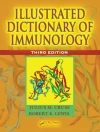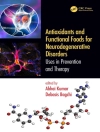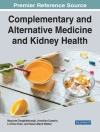This book outlines the global trends and new research directions of medical robotics, while also highlighting associated technical, commercial, regulatory, and economic challenges. In particular, it focuses on three areas of medical robotics: (i) robotic surgery, (ii) rehabilitation and personal assistance, and (iii) hospital automation. With improved safety, efficacy and reduced costs, robotic platforms will soon approach a tipping point, moving beyond early adopters to become part of the mainstream clinical practice, defining the future of smart hospitals and home-based patient care. This book provides an up-to-date, concise, focused, and effective overview of medical robotics, making the content suitable for readers with different technical backgrounds, including bioengineering, robotics, computer science, as well as clinical professionals. The clarity of the exposure of complex topics in simple way makes the book a unique resource for both experienced professionals and novices who approach medical robotics. As a reference for medical robot research, readers can select some chapters according to their own interests.
Tabla de materias
Introduction.- Robotic Surgery.- Surgical Robotics.- Therapeutic Training and Personal Assistance.- Rehabilitation and Assistive Robotics.- Hospital Automation Robotics.- Emerging Challenges and Future Trends.
Sobre el autor
Author Yao Guo received his Ph.D. degree in robotic vision from the City University of Hong Kong, Hong Kong in 2018. His postdoctoral training was at the Hamlyn Centre for Robotic Surgery, Imperial College London, London, UK from 2018 to 2020. Since October 2020, he has been the tenure-track Assistant Professor with the Institute of Medical Robotics, Shanghai Jiao Tong University, Shanghai, China. His main research interests include robotic vision, gait analysis, rehabilitation and assistive robotics, human-machine interaction, and machine learning algorithms in healthcare applications. He received the Best Conference Paper Award at the IEEE International Conference on Mechatronics and Automation (ICMA) in 2016.
Author Giulio Dagnino is Assistant Professor of Medical Robotics in the Robotics and Mechatronics Lab at the University of Twente, The Netherlands. He is a Biomedical Engineer (BSc and MSc from the University of Genoa, Italy) and graduated with a Ph D in Medical Robotics from the Italian Institute of Technology in 2013, with a dissertation on new technologies for robot-assisted laser microsurgery. Giulio’s research aims at addressing new challenges in the field of image-guided robotic intervention, with particular emphasis on MRI-Safe Devices for targeted therapy. He received the IEEE ICRA Best Paper Award in Medical Robotics in 2016, and the Best Design Award in the UK-RAS Surgical Robot Challenge in 2019.
Author Professor Guang-Zhong Yang is the founding dean of the Medical Robotics Institute, Shanghai Jiao Tong University. He was the founding director of the Hamlyn Centre for Robotic Surgery, Imperial College London. Professor Yang is also the Chairman of the advisory board, the UK-RAS Network. Professor Yang’s main research interests are in medical imaging, sensing and robotics. He is a Fellow of the Royal Academy of Engineering, fellow of IEEE, IET, AIMBE, IAMBE, MICCAI, CGI and a recipient of the Royal Society Research Merit Award and listed in The Times Eureka ‘Top 100’ in British Science. He was awarded a CBE in the Queen’s 2017 New Year Honour for his contribution to biomedical engineering.












